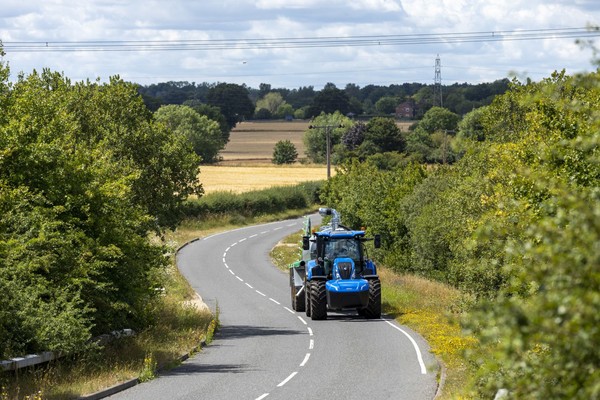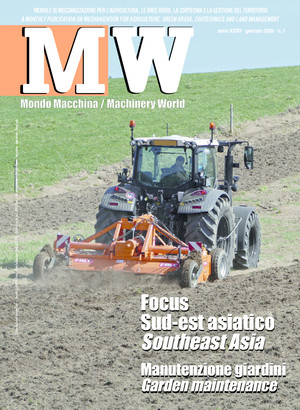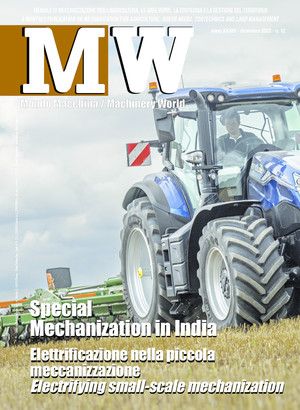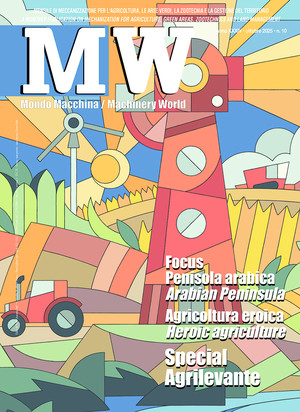
NRRP: agricultural machinery on the political agenda
The policy document drawn up by the manufacturers was presented at the FederUnacoma "Forum". Mechanization is fundamental for the Next Generation objectives, but more funds and greater chain coordination are needed. Alessandro Malavolti listed nine key points to relaunch the sector
The National Recovery and Resilience Plan represents an opportunity for agricultural machinery, but risks remaining ineffective without a specific policy for the sector. This is the message that emerges from the "Forum" on the theme "Mechanization: more resources for the ecological transition" which ended 19th July in Varignana (Bologna) as part of the FederUnacoma General Meeting. Opening the meeting, FederUnacoma President Alessandro Malavolti illustrated the contents of the "Position Paper" that the manufacturers' federation has drawn up to reiterate to the political world and institutions the fundamental role of mechanization for the agricultural economy, the environment and the territory, and to emphasise the need for an organic development strategy for the sector. After describing the scenario and prospects of agricultural machinery, the document lists nine points for priorities and requests that represent a sort of "political agenda" on which to unite the sector's organisations.
"The Next Generation EU and the new CAP - explained Paolo De Castro, coordinator of the S&D Group in the Agriculture Committee of the European Parliament - assign to agriculture increasingly specific functions with respect to the preservation of natural resources and the sustainability of production activities. The regulatory framework on which we reached political agreement with the Commission and the EU Council on 25 June at the Trilogue is based on three pillars: guaranteed income for farmers, environmental sustainability and social cross-compliance. The latter represents the most important innovation in the history of the CAP, which from now on will no longer finance farmers who do not respect the rights of their employees. This is a signal we wanted to give in order to put an end to unfair competition towards the vast majority of farmers who take good care of their workers.
The whole range of activities envisaged in the NRRP launched by the Italian Government," Malavolti stressed, "requires highly specialised and technologically advanced mechanization. FederUnacoma therefore calls on the government to allocate more resources for the purchase of new-generation machinery not only for traditional farming activities but also for niche productions, marginal areas and bioenergy chains, and asks for more funds for research and technological innovation.
The philosophy behind the NRRP is not that of economic support for its own sake, but that of investments that produce positive and lasting effects on the economic sectors, and in this regard, Malavolti, President of the Manufacturers' Association, stressed the importance of detailed monitoring of the progress of funding in the production districts.
"I consider it useful to convene a coordination workgroup for agricultural machinery to monitor the disbursement of NRRP funds. We are currently evaluating how to proceed," explained Filippo Gallinella, President of Parliament’s Agriculture Commission, "but it is still necessary for the Plan's resources to be committed quickly and efficiently.”
On this topic, Valtiero Mazzotti, Director General of the Agriculture Department of the Emilia Romagna Region, recalling the experience gained by the region in the management of RDPs, underlined the importance of exploiting the specific know-how acquired over the years by the regional authorities. In the last seven years," Mazzotti noted, "funding for rural development in Emilia Romagna has reached 1.2 billion euros, 800 million of which have already been disbursed. A staff of 200 handled the paperwork relating to the commitment of these resources. The regions, therefore, have a pool of expertise and know-how that can also be drawn on for the NRRP.
The use of increasingly technologically advanced mechanical equipment requires specific knowledge from operators and calls on the education and vocational training system. "In order to improve the system, it is necessary for education to evolve at the same rate as technology and to find increasingly effective ways of delivering courses and involving students," said Giovanni Molari, professor of agricultural machinery and Rector of the University of Bologna. As far as cooperation between companies and universities is concerned," added Molari, "the best experiences are probably those that arise from spontaneous initiatives and that grow progressively through interaction between companies and research facilities".
The disbursement of NRRP funds has already begun," concluded Malavolti, "but the path is still long and never before has there been such a need for negotiation between the bodies representing the agro-mechanical sector and the institutions. Mechanization is the great ally of the ecological transition and the sustainability of business activities," concluded the President of the manufacturers, "and it is essential that the political world is fully aware of this.”








